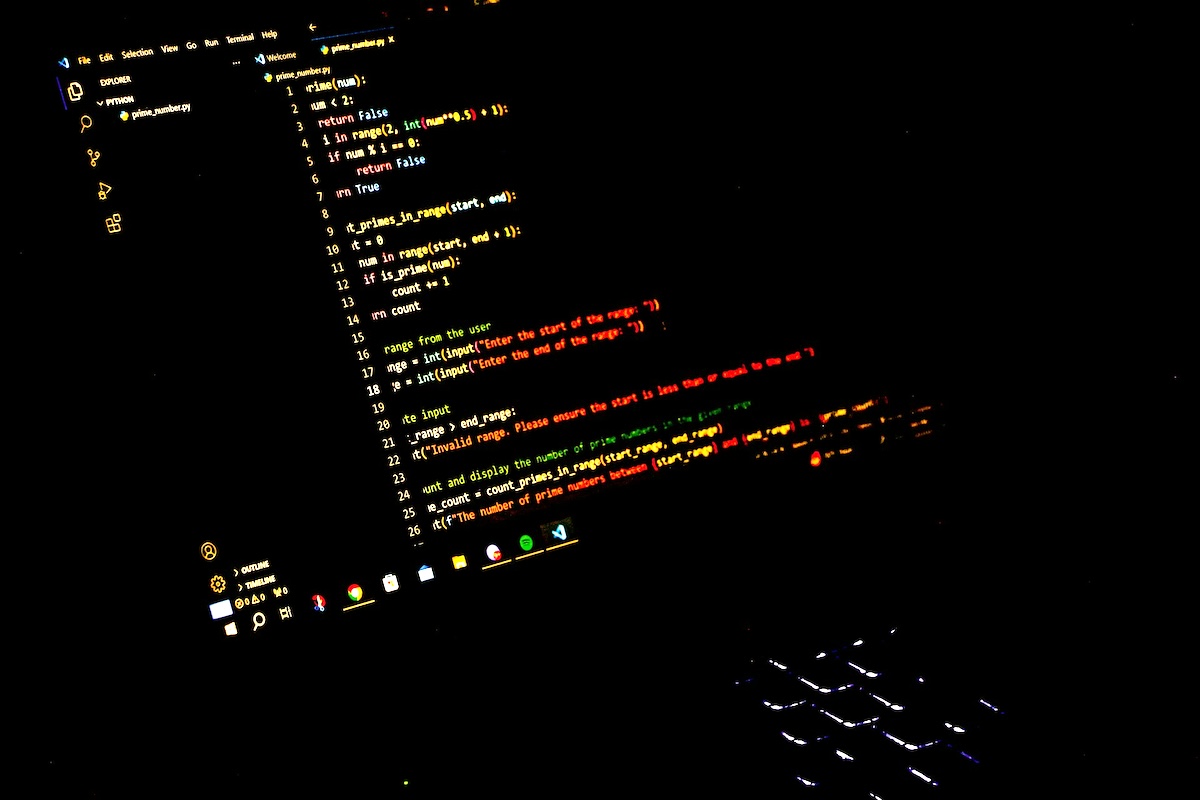Skift Take
Apple's latest efforts to clean up the App Store by rejecting templated apps is making app developers and event professionals nervous. Here we look into what these changes (if any) mean and how they will affect the event industry.
What’s going on with event apps? I was speaking to our own Xander Castro recently who mentioned he was struggling to get a white label app for a client. The vendor in question (sorry guys, you know we share no names) informed him of a new Apple policy against templated apps. The comment was corroborated by a recent article by the CEO of one app provider.
As publisher of the most popular report on event apps, The Event App Bible, we started a team effort to research what the hell is going on and as always give some clarity for event professionals, without marketing gimmicks or salesy pitches.
##abovethefold##
APPAGEDDON: What is it?
We’ve heard “x will kill y” many times before, but in this case, there is definitely real cause for concern… According to TechCrunch, Apple is cracking down on spam, clone apps and old dead apps in the App Store. The issue seems to be with rule 4.2.6 in the App Store Review Guidelines which states:
“Apps created from a commercialized template or app generation service will be rejected.”
This means that if an app is a clone of another app, it won’t get through the approval process. This is to prevent apps created by bots, spammers and other internet nasties making a cheap buck.
Oh wait, this is pretty much how event app providers offer white label solutions!
Therefore Apple is telling us that if an app is made with a template, it won’t be approved. According to these changes and a lot of rumors, this means no more white label event apps, unless developed with strong uniqueness (bespoke) and absolutely not using a template.
Where is Apple going with this?
Firstly, it’s important to note that Apple has always had a dim view of duplicate apps and its approval process has always taken that into account. However, the new rule is more explicit and specifically mentions “commercialized templates”.
What this is referring to is apps made using templates into which the app creator can easily stuff content. These templates allow developers to quickly create several clone apps based on a single theme or idea. When a legitimate game or app gains sudden traction, this method allows the developer to not only create one copycat app but hundreds or even thousands.
The motivation for this is usually to profit from ads delivered within the app but could also be for more nefarious gains. These are the apps Apple wants to kill. Apple doesn’t want to kill white labeling altogether, however, developers need to be aware that template based white label apps will likely face more scrutiny as a result of the new rule.
OK, But What About Event Apps?
Essentially, Apple does not want NameoftheeventApp in their store anymore.
In truth, we can only guess if they are referring to event apps in general or they got sucked in because Apple simply doesn’t care.
Surely the fact many event app providers are enforcing client advisory and content to contain the damage is a signal something is changing.
Specifically talking about event apps, Apple wants the developer to issue one app and within the app to offer the iterations of different events.
In practice, an attendee searching for NameoftheeventApp, won’t search for the name of the event, but for NameoftheAppProvider. Then within the app, they will be able to find NameoftheEvent.
That is a major shift in the tech attendee journey. It means:
- Adding extra steps to get the content we actually care for
- Losing the event branding and prioritizing the developer
- Exposing the attendee to competitor’s events
These are not nice improvements. I don’t buy it. Whenever you add any of the above, it is not a good thing for a business or customer.
These are the very reasons why more sophisticated and high-end events want white label solutions to begin with.
What Does The Clean Up Mean For Event Attendees?
If an event discards a white label app in favor of an ‘app within a vendor app’, there is no gain for the high-end user. Of course, there may be a unified development environment for app providers – but providers had that opportunity up until today but did not decide to take advantage of it. Of course, attendees may need to sign up once and port their profile to other events – but do I want my attendees to see that my competitor is on the same platform?
This is the same reason why many event ticketing and registration ‘app in app’ solutions are offering white label products to more demanding and high-end clients.
The truth is that a bespoke, on brand, customized experience is essential for most events. Especially when thousands are spent on color schemes and centerpieces. Arguably, you wouldn’t achieve that with a template, but it was a good compromise between standard and personal.
Events that take branding seriously should spend the time to develop bespoke apps from providers that offer white label behind the scenes technology, not templates. ‘App within an app’ is not an option for many.
Apps are becoming the remote control of events. They are the show guide, the replacement of staff, the recommendation engine, the matchmaking source. What if your showguide was an insert to an irrelevant newspaper? Not a good experience, right?
We struggle already with low download and adoption rates in the industry. Adding more steps is not going to be beneficial for the attendee. Period. Of course, if you are on a budget, that may change, but we are talking white label here, which is usually the highest priced product from vendors.
Event Apps Aren’t Going Anywhere
Broadly speaking, event apps are not dead but alive and well. It’s an exciting time for event apps and it looks like there are more exciting times ahead, as the technology itself shows no sign of slowing down. Event apps have become an important and valuable commodity and look to stay relevant for some considerable time yet.
Research conducted early in 2017 by EventMB revealed that 53% of over 300 event professionals surveyed are providing an event app for current events with 75% of those not using apps planning to do so in the future.
If Apple does eventually force templated white label apps out of the market, it’s not the end for event apps, however, it will certainly shake up the industry. Of course, there are more app options available to events than just white label apps, such as:
1. Web Apps – html5 web apps are accessed from the browser and should be compatible with most mobile and even desktop devices. Web apps lack some of the functionality and integration of native apps but make up for it in compatibility and easy adoption by attendees.
2. Bespoke Native Apps – a fully bespoke app is always going to be more expensive than a white label solution on balance but will be able to offer the attendee a much more unique branded experience, making it worth the hassle of a download. Although the bespoke app is clearly the ruler in terms of offering the best experience, the high cost and development time can be prohibitive for smaller events making it a pay-to-play game.
3. Hybrid Apps – as the name suggests, these are a hybrid of web and native apps. Due to the majority of the content being html5 web pages, it’s likely that many of these apps will have the same infrastructure and could also fall foul of Apple’s guidelines if developers are not careful. Hybrid apps will need to be more bespoke at the native level to survive.
New Advances In Event Apps
As the technology supporting event apps marches on, so do event apps themselves. Take for example some of the most recent innovations we’ve seen to get a better idea of how far event apps have come and why they’re going to be around for some time to come.
Artificial Intelligence
Artificial intelligence (AI) has been around for a while now and although it’s not quite a human replacement yet, it is taking control of many of the simpler tasks in daily life. That naturally extends to event apps for that reason. Through AI functionality built into event apps and suites, event managers can gain useful insight about attendee interactions and habits; sometimes even in real time. When linked to social data and demographics, the event app becomes an incredibly powerful tool, not only delivering the content attendees need but providing insight that can be used for a multitude of event planning tasks, including event marketing, selecting potential sponsors and reporting to various event stakeholders. AI is probably the biggest game changer we’re seeing in event apps and its powers extend far beyond gathering and sorting information.
Virtual Reality
Virtual Reality (VR) seems to have finally stuck and is creeping into eventtech and event apps respectively. With virtual events becoming more commonplace, virtual attendees are starting to demand more than a simple livestream of keynote presentations. Thanks to VR and it’s cheaper, more accessible sibling 360º video, virtual attendees can have a much more immersive experience of the event. For now, a full VR experience may still be out of reach for many, due to high costs and technical overheads, but 360º video can be viewed on almost any device. This allows for the event app itself to become a VR gateway for the event.
Chatbots & Concierge
As people are beginning to rely on apps like Siri and Google Home in their daily lives, it stands to reason that they would also want the same kind of service at an event. Embedding chatbots and concierge functions into event apps can help attendees quickly access information that might otherwise be hidden behind a menu, whilst also providing eventprofs with data relating to what questions are being asked, how often and by whom, etc.
Matchmaking
Matchmaking is a hot topic in the world of event apps at the moment and thanks to AI, attendee matching is now better than ever. Rather than simply matching answers to preset questions, AI-powered matchmaking can draw data from many sources and combine it to create a better picture of the attendee. That information is then used to find the right people to meet or even which exhibits to visit at a conference. It’s now also possible for the app to handle setting up appointments and booking the rooms too. Thanks, event apps!
Social Extension
Another big trend we’re seeing in event apps is social extension – the inclusion of event exclusive social feeds and timelines or online communities within the app. Providing an online space for the event back channel can be useful for eventprofs in terms of capturing qualitative data about an event.
With that, it can also benefit attendees by giving them a forum to speak and continue doing so after the event but without the signal to noise problems of public social media channels.
In the Event App Bible, we discuss more of the latest trends and innovation in detail.
What Happens Now?
Here is a recap of the facts on the Appageddon and what should you do about it:
The Facts
- Apple has not issued any official statement on the matter.
- Most comments we have so far are from vendors that are struggling to get their app approved. This might not be the case for other vendors.
- We have reports of event planners struggling to get a white label solution from certain vendors.
What Should You Do About It?
- Shop around. Make sure to consult as many providers as possible to establish whether white labels are in effect banned at all levels.
- Decide. If templated white label is not an option anymore, you should decide whether to invest in a bespoke app instead of a templated one. This usually depends on your budget, your attendees’ adoption of the app, strategic value of the app, time scales, and many other factors.
- ‘App within an app’. If tech budget is an issue or your attendees don’t really care, you can go with an ‘app within the app’ solution.
In Conclusion
This is not the end of the event app but the dawn of a new horizon. Changes like these often cause a new raft of innovation, resulting in leaner competition and ultimately lower costs.
The event app is dead, long live the event app.





